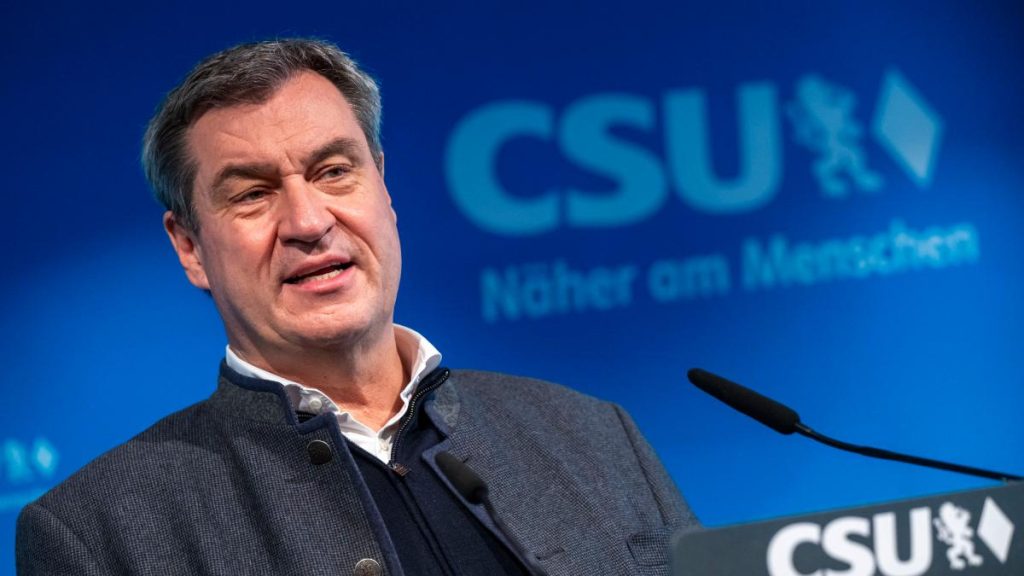CSU leader Markus Söder has criticized the work of Foreign Minister Annalena Baerbock, questioning the purpose of her numerous trips and calling for Chancellor Olaf Scholz to intervene. Söder expressed concerns about the current role of German foreign policy, stating that the many trips of the Minister have resulted in confusion and international harm without any tangible results. He urged the Chancellor to establish clear leadership in foreign policy. Söder also commented on Baerbock’s recent controversy with Israeli Prime Minister Benjamin Netanyahu, suggesting that her actions are damaging Germany’s reputation.
Additionally, Söder criticized the coalition government formed by the SPD, Greens, and FDP, referring to it as a “ruin” and claiming that it creates more problems than it solves. He specifically pointed out the recent FDP proposal for economic policy, which includes stricter rules for social benefits and an end to early retirement, as evidence of discord within the coalition. Söder characterized the FDP’s decisions as seeking to distance themselves from the government, suggesting that new elections may be necessary to address the disconnect between coalition members.
Regarding the FDP’s position on economic policy, Söder emphasized the need for the party to act quickly if they truly believe in their proposals, rather than prolonging their time in government for personal gain. He criticized the idea of delaying new elections as “unworthy” of both the FDP and Germany as a whole, calling for a swift resolution to the internal conflicts within the coalition. Söder’s comments reflect the growing tensions and challenges facing the coalition government as it attempts to navigate complex policy issues and maintain unity among its diverse parties.
The criticism of Baerbock’s actions by Söder highlights the broader challenges facing the current government in terms of establishing a coherent and effective foreign policy strategy. The lack of clear direction and tangible outcomes from the Minister’s travels raises concerns about the impact on Germany’s international reputation and relations. Söder’s call for Chancellor Scholz to assert his leadership in this area underscores the need for decisive action to address these issues and ensure a more cohesive approach to foreign policy decision-making.
Overall, Söder’s comments reflect a broader sense of frustration and dissatisfaction with the current state of German politics, particularly within the coalition government. The criticisms of Baerbock and the FDP highlight the ongoing tensions and disagreements that threaten the stability and effectiveness of the government. As Germany continues to grapple with complex domestic and international challenges, the need for strong leadership and coherent policy direction becomes increasingly urgent to address these issues and restore confidence in the government’s ability to govern effectively.















